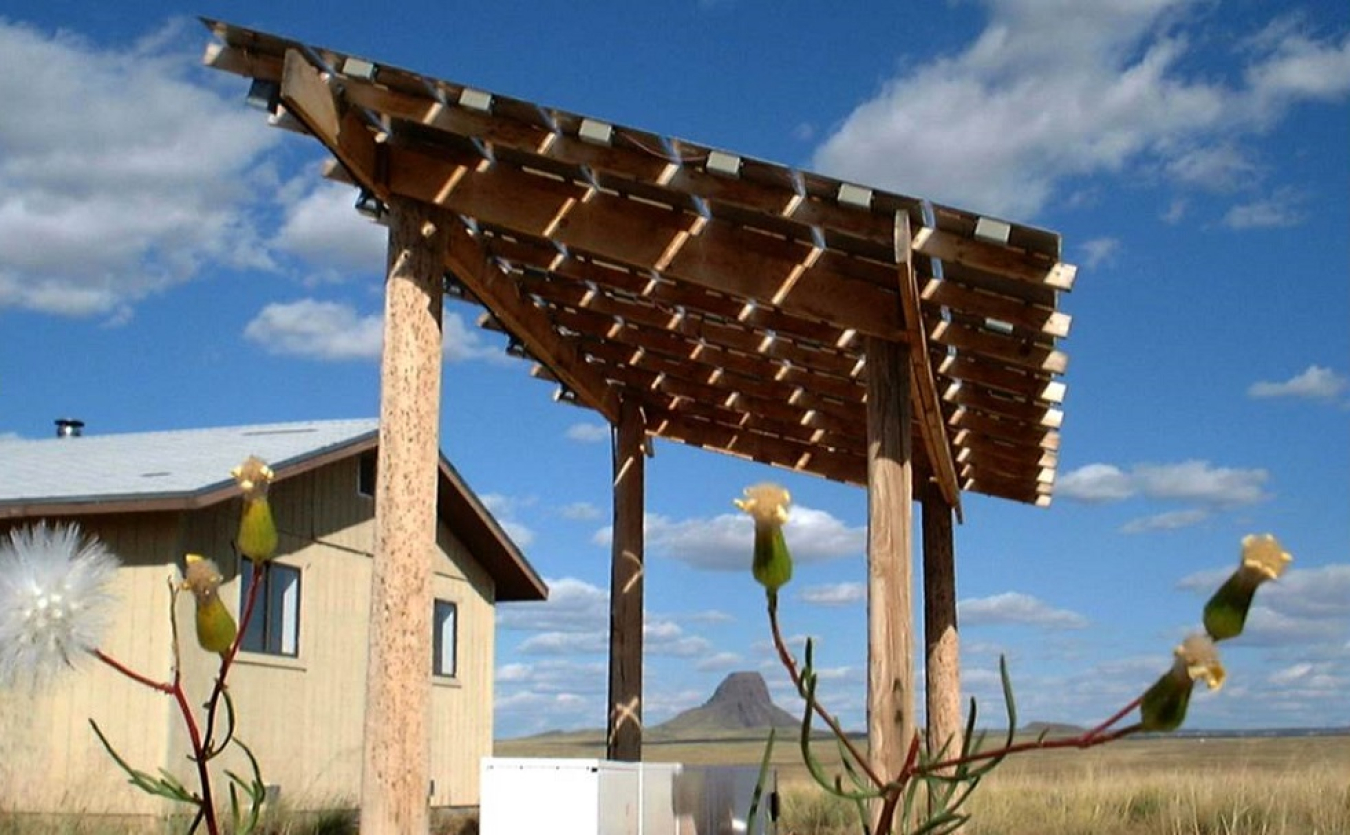
Solar electric array on an off-grid Najavo home.
Most Americans don’t realize that ready access to electricity has long been considered a luxury in many tribal communities, including the Navajo Nation. Those challenges, and the U.S. Department of Energy’s (DOE’s) role in advancing clean, sustainable renewable energy solutions on Indian lands, were highlighted in a recent segment of National Public Radio’s (NPR’s) Morning Edition.
NPR interviewed Sandra-Begay Campbell, a Navajo tribal member who manages the Tribal Energy Program at DOE’s Sandia National Laboratories, about the technical and financial barriers associated with running transmission lines to remote, sparsely populated areas of Indian reservations. Begay-Campbell pointed to the technical assistance DOE has provided to enable tribal members like Leo Thompson, who works as an electrician's assistant, to install solar photovoltaic systems as an affordable alternative.
Derrick Terry, a renewable energy specialist for the Navajo Tribal Utility Authority, described the challenges his own family faced in supplying their homes with enough power turn on the lights at night or watch TV—simple things most Americans take for granted—and the sense of awe and excitement he experienced the first time his grandmother's home had electricity for Christmas lights.
Listen to the full story on NPR.
Learn more about DOE’s technical assistance program for Tribes.
